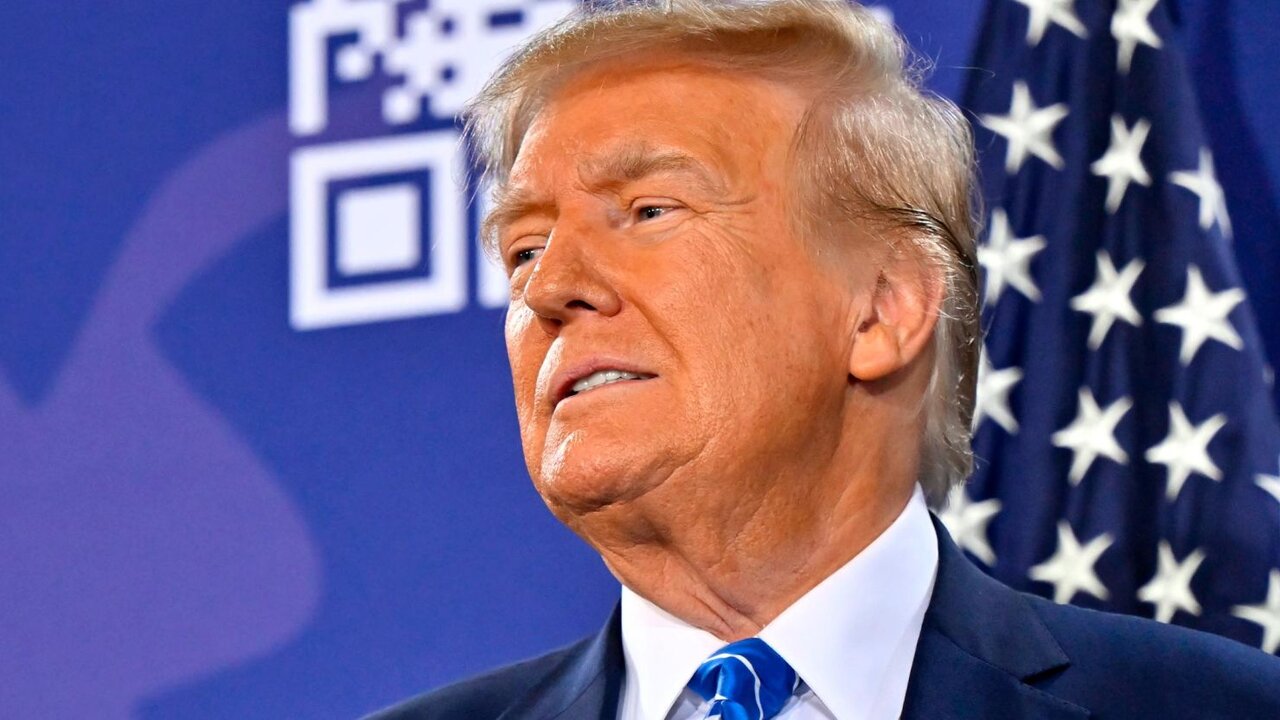Trump doubles down on false claims about Iran attack

TEHRAN- Donald Trump continues to propagate falsehoods as he re-enters the political arena, attempting to justify America's failed policies in the volatile West Asia region.
Former U.S. President Donald Trump continues to spread misinformation about Iran, this time falsely claiming Tehran deliberately missed a U.S. base in Iraq during a retaliatory missile strike in 2020.
These statements, made during a recent Fox News interview, are the latest example of his failed policy to justify his administration's ineffective West Asia policies.
Trump's claim directly contradicts established facts. As reported by the Washington Post and confirmed by Pentagon officials and satellite imagery, 11 Iranian missiles struck the targeted Ain al-Asad airbase, causing significant damage and injuring over 100 U.S. troops. While no deaths occurred, the Chairman of the Joint Chiefs of Staff at the time, Gen. Mark Milley, attributed this to defensive measures, not deliberate avoidance by Iran.
This incident followed the Trump-ordered assassination of Iranian anti-terror General Qassem Soleimani, a move widely criticized for its illegality and potential for escalation.
Trump's continued misrepresentation of the subsequent Iranian response casts further doubt on his judgment and commitment to factual accuracy.
His actions highlight the dangers of misinformation and manipulation in shaping public perception of international events.
Unveiling Trump's tapestry of deception: a detailed examination of falsehoods
The Washington Post's stark headline on January 24, 2021, "Trump’s false or misleading claims total 30,573 over 4 years," serves as a chilling testament to the tumultuous era of President Donald Trump's leadership, meticulously documented by the newspaper's investigative team. From the outset, Trump's presidency was marked by a barrage of dubious assertions, with a staggering 492 suspect claims cataloged within his first 100 days in office.
As the 2020 election loomed, Trump's penchant for falsehoods reached a fever pitch, with a jaw-dropping 503 false or misleading claims tallied on November 2 alone, the eve of the vote. It was a frantic bid for reelection underscored by a disregard for truth.
This exponential surge in untruths mirrors the narrative arc of Trump's tenure, with falsehoods metastasizing into a defining feature of his presidency. By the time he left office, Trump had amassed a staggering 30,573 falsehoods — an average of approximately 21 erroneous claims per day.
According to The Washington Post's analysis, Trump's falsehood frequency escalated from an average of six claims per day in his first year to a staggering 39 claims per day in his final year. The numbers paint a sobering picture: it took Trump 27 months to breach the 10,000-claim mark, yet he hurdled past 20,000 within an additional 14 months, ultimately surpassing 30,000 in less than five months.
Beyond the sheer volume of falsehoods, Trump's penchant for deception extended to critical geopolitical matters, particularly in his dealings with West Asia and Iran. Despite mounting evidence to the contrary, his administration persisted in propagating false narratives, further complicating already delicate diplomatic relations.
In the American political history, the era of Trump's presidency will be remembered not only for its policies but also for the staggering volume of falsehoods that permeated public discourse. As the nation reckons with the consequences of this legacy, it underscores the vital importance of truth in governance and the enduring need for vigilant accountability.
Decoding motivations: understanding Trump's fabrications
In the wake of the January 2020 assassination of Iranian anti-terror General Soleimani, ordered by then U.S. President, Trump emerged as a figure seemingly proud of this heinous action. He leveraged this event to stir up populism, diverting attention from both domestic and foreign policy challenges facing the United States.
At the time, Americans grappled with pressing concerns such as border issues, the asylum system, abortion rights, and the imperative of addressing clean energy and carbon emissions.
Even in the face of setbacks in U.S. policy in West Asia, Trump appeared defiant. He boasted about withdrawing from the Joint Comprehensive Plan of Action (JCPOA), claiming it as a major achievement for Tel Aviv. Trump seemed to believe that escalating hostility towards Tehran would translate into greater public satisfaction and votes for the Republican Party.
In response to General Soleimani's assassination, Tehran retaliated by launching missiles at the U.S. Ain al-Asad base in Iraq. This act shattered the myth of American invincibility and revealed a nation willing to stand up to American bullying. American figures were caught off guard, unable to provide a satisfactory response to the American people.
In an attempt to salvage the situation, Trump downplayed the significance of Iran's missile attack, falsely claiming that it had been previously announced to him and that the missiles had not hit their intended target. However, this narrative crumbled under scrutiny, serving only to further undermine U.S. credibility in the region.
Ultimately, Trump's false claims about Iran's retaliatory actions served to deflect attention away from the shortcomings of U.S. policy in West Asia, highlighting the administration's reluctance to be held accountable for its failings.
In response to Trump's claims, Ali Shamkhani, a senior advisor to Iran's Leader of the Islamic Revolution Ayatollah Khamenei, dismissed the former U.S. president's assertion that Iran intentionally avoided targeting a U.S. base in Iraq in January 2020 following the assassination of General Qassem Soleimani.
Shamkhani refuted Trump's statements as "completely false," emphasizing that Iran had planned a large-scale, surprise missile operation against the Ain al-Asad base, Iraq's most significant American base, as retaliation for General Soleimani's martyrdom.
He clarified that due to Iran's close ties with Iraq and out of neighborly considerations, the former Iraqi prime minister was informed half an hour before the operation.
Shamkhani condemned Trump's claims, labeling him as a habitual liar.
Leave a Comment